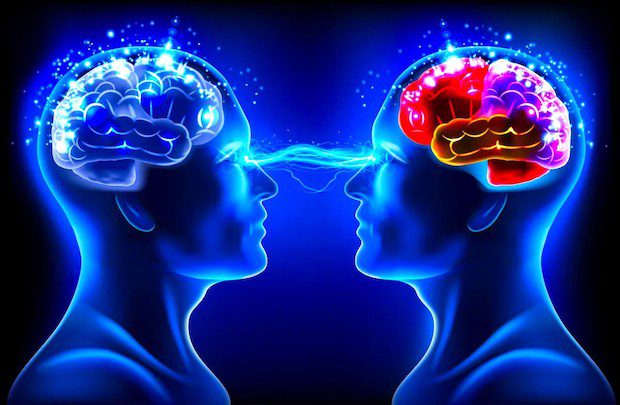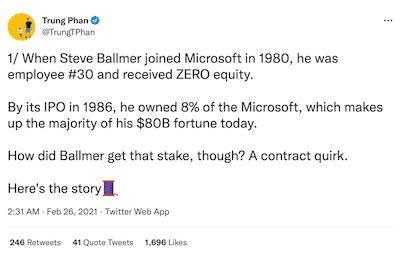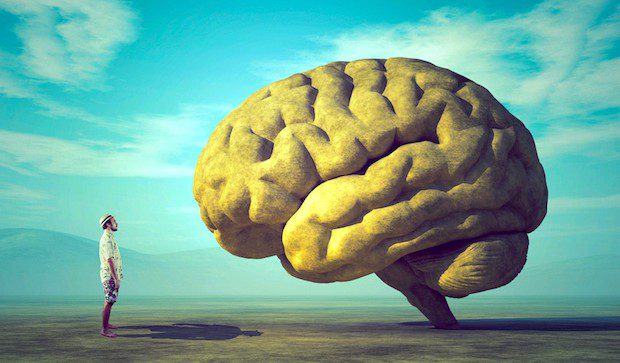Stories superglue themselves to human brains.
It’s bizarre. Only when you look at storytelling from a psychological perspective does it become apparent why. Once you understand it you can use storytelling to get what you want.
I have to warn you though that these techniques, in the wrong hands, can be used for evil purposes. Do not try to steal, lie, manipulate, or cheat people with them.
Doing the right thing is what you must do to be successful.
What scans of the brain reveal about storytelling
Facts and figures are boring as hell.
We’ve all known that for years but most of us don’t know why. Turns out there’s a scientific explanation.
MRI brain scans show that stories activate more parts of the brain than plain old facts and figures.
They also found it takes more brainpower to listen to and analyze stories than it does to look at facts or numbers. So maybe mathematicians and fact-checkers aren’t as brilliant after all.
Stories delight your brain far more so you enjoy the experience more, which means the content goes deeper into your subconscious and is better remembered in the future.
Traditional education does the opposite. Old school institutions attempt you use the lame method of memorization, and not stories, which is why you forget most of it before you start your first job.
Stories give us the love drug
When you have a baby you learn about the love drug called oxytocin.
It’s responsible for starting the labor process for pregnant women and bonding newborns to their parents.
Bizarrely, stories release oxytocin into your body. That’s why you give a damn about what happens to a stranger in a movie that you’ve never met — or even a made-up animated character in a Disney movie.
The oxytocin you get from stories makes you trust the lead character and their recollection of events. That’s why in marketing everyone says “stories sell.” They literally do because of oxytocin.
Some use it for good like authors. Others use it for bad like Donald Duck politicians.
The greatest psychological effect of storytelling 99% of people don’t know
I’m certain most of you don’t know this. Our brains are attracted to stories and when we hear them, without our control, our brains will start to fire neurons in the same pattern as the storytellers.
These mirror neurons create a connection between the storytellers and ours that’s hard to break.
The scientific term for this phenomenon is known as neural coupling. Trying to resist this powerful persuasive technique is near impossible.

Image Credit-Getty Images
Stories focus the brain like a laser
Our monkey brains we inherited from our ape cousins love to get distracted. Every day we have around 2,000 daydreams and waste about half the day wandering.
Once our brain is presented with a story, all of this mind wandering is nuked and our attention is focused on the characters and plot.
The eBay experiment that shows the power of stories
The Insignificant Objects Experiment famously showed the power of storytelling.
Two dudes from New York spent $129 buying stuff from flea markets. They bought 100 items at an average cost of $1.29 each. Instead of just throw them up for sale, they recruited writers to write stories for each item.
After they sold everything on eBay the $129 became $3,612.51
Here’s a few items that blew my mind:
A Russian Figurine bought for $3 sold for $193.50 (a 6333% increase)
A shot glass bought for $1 earned $76 (a 7600% increase)
A small Cow Vase bought for $2 sold for $62 (a 3000% increase)
Charitable organizations know this too. That’s why they hit you with those hard luck stories before asking you to open your wallet and throw cash at a good cause (and to pay for their huge salaries and cappuccinos).
This isn’t a random comment either. Dr Paul Zak backed up the impact stories have on how much we will donate to a charity with his research.
Stories create emotion. And emotion changes how we spend money.
How to tell amazing stories to get more of what you want
So stories are the lifeblood of the human experience. This is what you need to know to tell amazing stories like a pro.
- If you tell a story about yourself, tell people in the first three sentences how you felt.
- Start the story strong and throw punches. If you don’t capture attention then no one will read until the end.
- Tell the beginning and the end of the story right at the start (example below).

Image credit: @ TrungTphan via this twitter
- Julian Shapiro taught me good storytelling is “the art of strategically withholding information.” Don’t tell us everything upfront. Place cliffhangers throughout your story.
- The temptation is to spend too much time setting up the story. Storytelling expert Nathan Baugh advises to “find the interesting parts of your story, jump right to it, and provide as little backstory as possible.”
- Inject emotion. Most writers tell the story or cite the facts … but leave out emotion. When they do, their story comes across as boring and so readers don’t read it. No emotion, no care-factor.
- Use a popular storytelling structure so you don’t leave out a key ingredient. I like this one from Jon Brosio:
• A [HERO]
• has a [PROBLEM]
• And meets a [GUIDE]
• Who gives them a [PLAN]
• That calls the hero to [ACTION]
• And helps them avoid [FAILURE]
• And ultimately ends in [SUCCESS]
- When you’re always the center of attention it can look egotistical. My friend Michael Thompson says to also tell stories where you make other people (especially unlikely heroes) the center of the story instead.
- Write down story-worthy moments as they happen. Then when you need to tell a story, go to your library and pull one out. The better you capture the story’s details in the moment the easier it will be to tell later on.
- End the story with a takeaway or by relating it back to the reader. “If I can fight a brown bear, lose my shirt, and watch my wife get murdered and live to tell the story, then you can overcome tragedy too.”
Final Thought
The person who can master the art of storytelling gets an unfair advantage in life. Ben Franklin said, “If you are to persuade, appeal to interest and not to reason.” Stories make ideas interesting, and interesting sells.


